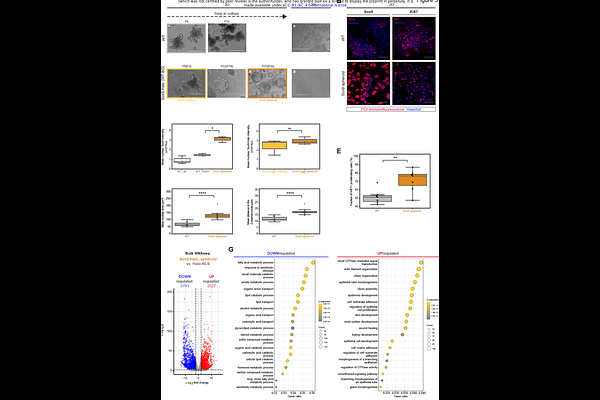Distinct Sox9 single-molecule dynamics characterize adult differentiation and fetal-like reprogrammed states in intestinal organoids

Distinct Sox9 single-molecule dynamics characterize adult differentiation and fetal-like reprogrammed states in intestinal organoids
Walther, N.; Anantakrishnan, S.; Dailey, G. M.; Maurer, A. C.; Cattoglio, C.
AbstractTranscription factors (TFs) mediate gene expression changes during differentiation and development. However, how TF biophysical properties and abundance dynamically regulate specific cell state transitions remains poorly understood. Using automated live-cell single-molecule tracking (SMT) in intestinal organoid models, we revealed an expression level-independent decrease in the fraction of immobile Sox9 molecules during differentiation from ~48% to ~38%, largely dependent on DNA binding. Strikingly, long-term Sox9 overexpression caused organoids to transition from budding to spheroid morphology accompanied by increased proliferation and a loss in gene expression signatures for intestinal identity and function. In this fetal-like reprogrammed state, a larger fraction of partially self-interacting Sox9 molecules (~61%) binds to DNA. Our results suggest context-dependent Sox9 single-molecule dynamics during adult intestinal differentiation and fetal-like reversion in consequence to long-term Sox9 overexpression. Our work underpins the power of our automated live-cell SMT framework to generate testable hypotheses towards unraveling molecular mechanisms underlying tissue-level phenotypes.